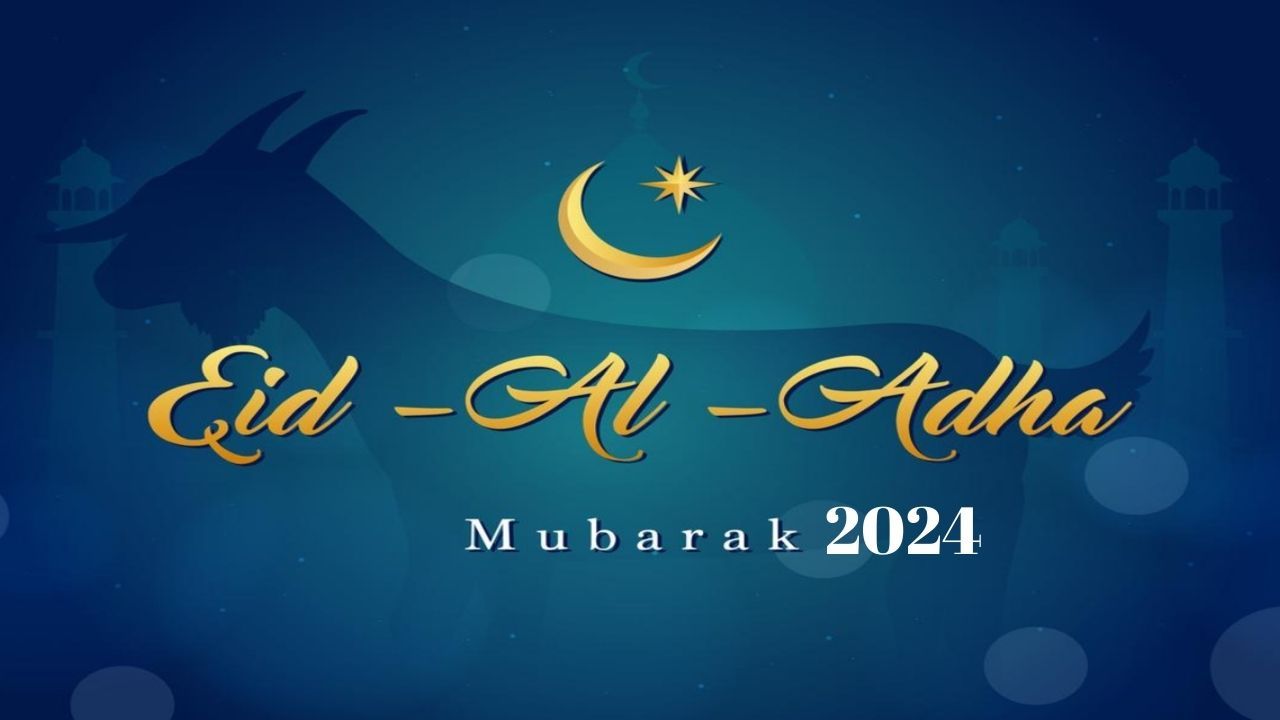The Essence of Eid al Adha 2024/Bakrid and Qurbani:
Introduction:
- Eid ul Adha 2024, also known as Eid al Adha/Bakrid , is a sacred Islamic festival celebrated by Muslims worldwide. It holds immense significance as it commemorates the willingness of Prophet Ibrahim (Abraham) to sacrifice his son Isma'il (Ishmael) as an act of obedience to God's command. Eid al Adha 2024 also marks the culmination of the Hajj pilgrimage to Mecca, one of the Five Pillars of Islam, making it a deeply spiritual and joyous occasion for Muslims.
Meaning:
- The name "Eid ul Adha/Bakrid" translates to the "Festival of Sacrifice," reflecting the central theme of the festival. It serves as a reminder of Prophet Ibrahim's unwavering faith and devotion to Allah, as well as the divine mercy and intervention that replaced Isma'il with a ram for sacrifice. This act symbolizes obedience, submission, and trust in Allah's providence.
Observances and Traditions:
- Eid al Adha 2024/Bakrid begins with the performance of Eid prayers, known as Salat al-Eid, held in mosques, prayer grounds, and community centers. The prayers are followed by a sermon (khutbah), emphasizing the significance of sacrifice, charity, and unity in Islam. After prayers, families gather to partake in a festive meal, which typically includes a variety of traditional dishes prepared with the meat of the Qurbani.
- The Qurbani, or sacrifice, is a fundamental aspect of Eid al Adha 2024/Bakrid. It involves the slaughter of an animal, such as a sheep, goat, cow, or camel, following specific guidelines prescribed by Islamic law. The sacrificed animal is divided into three parts: one-third for the family, one-third for relatives and friends, and one-third for the less fortunate. This act of sharing embodies the spirit of generosity, compassion, and solidarity within the Muslim community.
Religion and Culture - Equality and Diversity:
- Eid al Adha 2024 transcends cultural and geographical boundaries, uniting Muslims from diverse backgrounds in the spirit of faith and brotherhood. Regardless of ethnicity, nationality, or socioeconomic status, Muslims around the world come together to celebrate this auspicious occasion. The emphasis on equality and diversity is reflected in the practice of Qurbani, where everyone, regardless of their means, is encouraged to participate and share the blessings of Eid with others.
- Moreover, Eid al Adha 2024/Bakrid highlights the importance of empathy and compassion towards the less fortunate. It is a time for Muslims to reflect on their blessings and express gratitude for Allah's mercy and provision. By reaching out to those in need and sharing the joy of Eid, Muslims reaffirm their commitment to social justice, solidarity, and humanitarian values.
Conclusion:
- Eid ul Adha 2024/Bakrid is more than just a religious festival; it is a profound expression of faith, sacrifice, and community spirit. It serves as a reminder of the importance of obedience to Allah's commands, compassion towards others, and the values of equality and diversity in Islam. As Muslims around the world come together to celebrate Eid al Adha, they renew their commitment to their faith and strengthen the bonds of brotherhood and sisterhood that unite them.
FAQs:
When is Eid al-Adha/Bakrid in 2024?
- Eid al-Adha in 2024 is expected to fall on Monday, 17th June. However, the exact date may vary depending on the sighting of the moon, as Islamic holidays are determined by the lunar Islamic calendar. It's always advisable to confirm the date with local authorities or religious leaders closer to the time.
What is Eid al-Adha celebrated for?
- Eid al-Adha, celebrated by many Muslims, commemorates the devotion of Abraham and the survival of his son Ishmael. This story, known as the Akedah in Judaism or the Binding of Isaac, originates in the Torah, specifically in Genesis, Chapter 22. The Quran references the Akedah in verse 100 of chapter 37.
What is the significance of Eid ul Adha?
- Eid ul Adha commemorates Prophet Ibrahim's willingness to sacrifice his son Isma'il as an act of obedience to God's command, as well as the divine mercy that intervened to provide a ram for sacrifice.
Why are there two Eids?
- In the Islamic calendar, Eid occurs twice a year, as "Eid" simply denotes a Muslim festival. Eid al-Fitr is the first and comparatively smaller of the two occasions.
Why do Muslims celebrate Eid?
- Eid, or Eid al-Fitr, is celebrated annually by Muslims worldwide with immense fervor and joy. It signifies the culmination of Ramadan, the holy month of fasting observed by Muslims globally. On the day of Eid, Muslims come together to break their fast collectively, marking the end of Ramadan and celebrating the blessings of the month.
How is Eid ul Adha celebrated?
- Eid ul Adha is celebrated with Eid prayers, festive meals, and the performance of the Qurbani, where an animal is sacrificed, and the meat is distributed among family, friends, and the needy.
What is Eid al-Adha and Fitr?
- "Eid" is an Arabic term that translates to "feast," "festival," or "holiday." Specifically, "Eid al-Fitr" means the "festival of the breaking of the fast," while "Eid al-Adha" means the "feast of the sacrifice."
What is the Qurbani?
- The Qurbani is the act of sacrificing an animal, such as a sheep, goat, cow, or camel, in remembrance of Prophet Ibrahim's sacrifice and as a symbol of sharing with those in need.
Is Eid ul Adha only celebrated by Muslims who perform Hajj?
- No, Eid ul Adha is celebrated by Muslims worldwide, whether or not they have performed the Hajj pilgrimage. It is a significant festival for all Muslims, regardless of their pilgrimage status.
We hope that you like this content and for more such content Please follow us on our social site and YouTube and subscribe to our website.
Manage your business cash flows and payable/receivables using our Bahi Khata App
